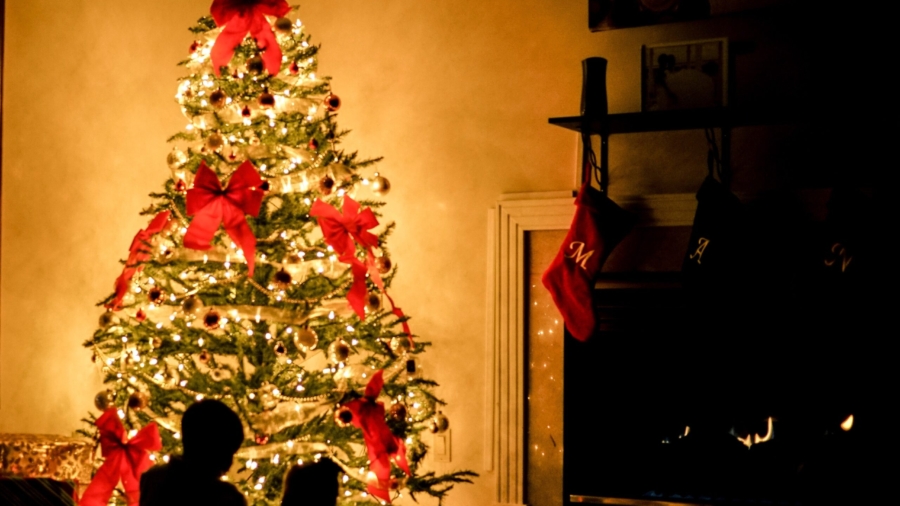As December approaches, there is a resounding festive spirit in the air. Streets are adorned with brilliant lights, Christmas carols play in every store, and families gather to decorate Christmas trees. However, while Christmas is a widely celebrated holiday around the world, it is important to recognize that not everyone partakes in this particular festivity. Muslims, for instance, have their own unique and vibrant celebrations that bring families together and strengthen their faith.
Eid al-Fitr and Eid al-Adha are two of the most significant Muslim festivities that are celebrated globally. These joyous occasions mark important milestones and are a time for Muslims to express their gratitude to Allah.
Eid al-Fitr, also known as the Festival of Breaking the Fast, is celebrated at the end of Ramadan, the Islamic holy month of fasting. Muslims abstain from eating and drinking from dawn to sunset during Ramadan, and Eid al-Fitr signifies the end of this period of self-discipline. The festival is a time for rejoicing and gratitude, as Muslims come together to offer special prayers, exchange gifts, and feast on delicious foods. It is a celebration of unity and forgiveness, as families and friends visit each other and reconcile any past disputes.
Eid al-Adha, on the other hand, is the Festival of Sacrifice and is celebrated to commemorate the willingness of Ibrahim (Abraham) to sacrifice his son as an act of obedience to God. However, just as Ibrahim was about to sacrifice his son, God provided a lamb to be sacrificed instead. This festival is characterized by acts of charity and the sacrifice of an animal, usually a sheep or goat. The meat is then distributed among family members, neighbors, and those in need. Muslims also participate in communal prayers, listen to sermons, and visit loved ones during this time. It serves as a reminder to Muslims of the importance of sacrifice and obedience to God.

In addition to Eid celebrations, Muslims also observe a variety of other festivals throughout the year. Mawlid al-Nabi, also known as the Prophet Muhammad’s birthday, is celebrated by Muslims worldwide. This festival is an opportunity to express love and admiration for the Prophet Muhammad and to learn about his teachings. Muslims gather in mosques or community centers to listen to sermons, engage in prayers, and engage in acts of charity. The day is often marked with communal meals and the recitation of poems and hymns honoring the Prophet.
Another significant celebration is the Islamic New Year, also known as Hijri New Year. Muslims use a lunar calendar, and the New Year marks the migration of the Prophet Muhammad and his followers from Mecca to Medina. This migration, known as the Hijra, was a turning point in Islamic history. The New Year is commemorated by Muslims reflecting on their faith, seeking forgiveness, and making resolutions for the upcoming year. It is a time for renewal and rejuvenation.
Moreover, the holy month of Ramadan itself is a festive time for Muslims. Although it is a period of introspection and spiritual growth, it also generates an atmosphere of celebration and togetherness. Muslims gather for iftar, the breaking of the fast at sunset, and suhoor, the pre-dawn meal. Families and friends come together to share meals, offer prayers, and engage in acts of charity and giving. Streets and markets are bustling with activity, as people purchase special Ramadan treats and decorations. It is a month where the community truly comes alive, united in their devotion and love for Allah.
The Ultimate Guide to Choosing and Caring for Your Christmas Tree
Ultimately, while Christmas is significant for many, it is important to recognize and appreciate the diverse celebrations within different religious communities. Exploring Muslim festivities such as Eid al-Fitr, Eid al-Adha, Mawlid al-Nabi, Islamic New Year, and Ramadan offers invaluable insight into the rich tapestry of traditions and faith that Muslims hold dear. These celebrations foster unity, gratitude, and self-reflection, reminding Muslims of their purpose and strengthening their connection to their values and beliefs. As we embrace and learn about these festivities, we can truly celebrate the diverse world we live in, where varied traditions coexist and enrich each other.


Add a Comment